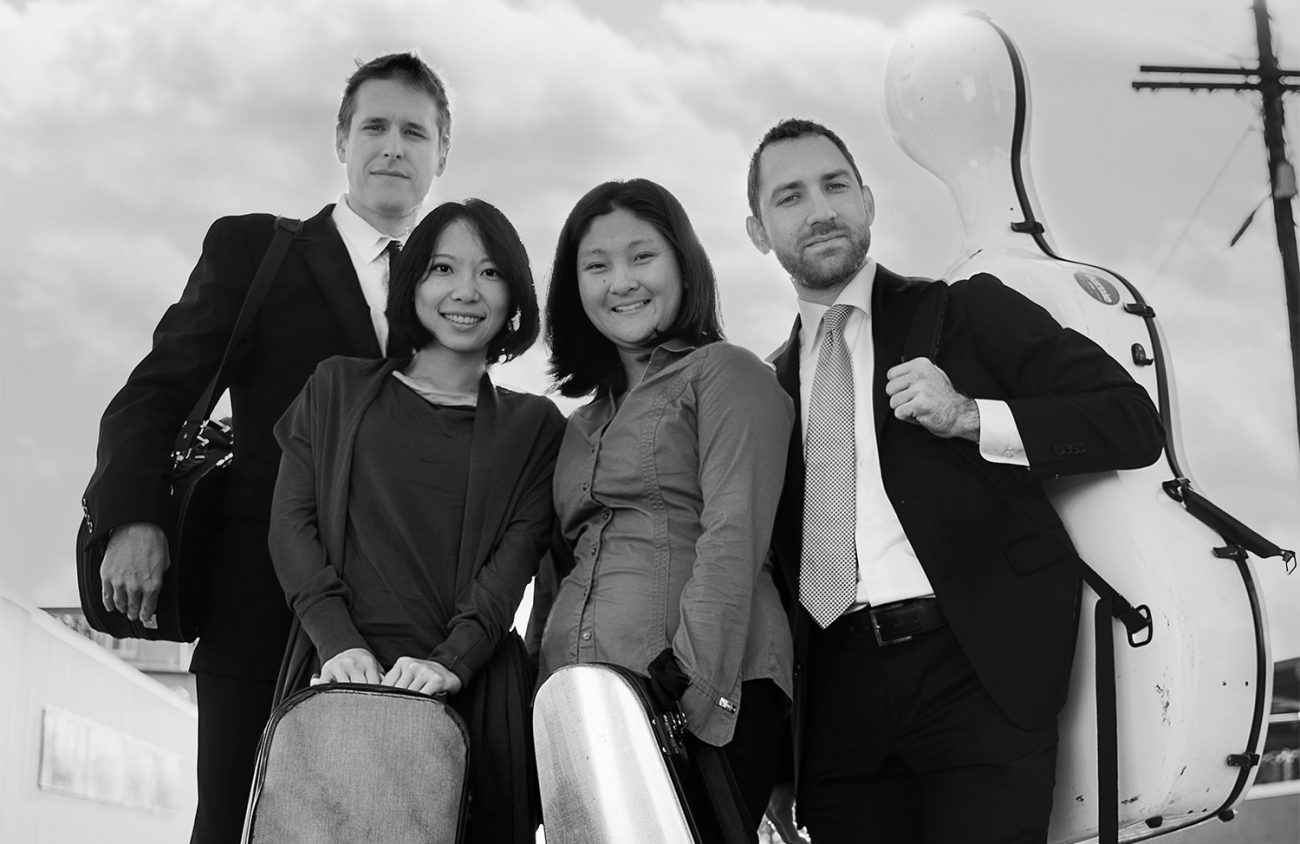Employing the theme and variation technique of classical music composition, “Irony” begins with a violin melody. Developing from there, a cello soon joins, bowing open fifths in the bass register. Repeating formative musical ideas and changing only tempo, harmony and counterpoint, among other compositional elements, the music continues, exploring the beauty in repetition, much like our own collective experience throughout this past year of pandemic.
This piece, written for string trio by Joanne Na, a second-year master’s student in composition at the University of Oregon School of Music and Dance, premieres in late April on YouTube, in a virtual performance from Eugene classical music ensemble Delgani String Quartet.
The concert is called Music of Hope and Resilience, part of the UO’s year-long Music Today Festival for the 2020-21 academic year.
Including “Irony,” the prerecorded show will feature eight new works for string trio written by composition students in the Oregon Composers Forum (OCF).
Consisting of graduate and invited undergraduate composition students, and part of the UO composition curriculum, OCF develops new works of classical music through collaborations between student composers and student-led groups or with professional artists or ensembles in residence.
OCF prioritizes international perspectives on classical music, and several works performed for Music of Hope and Resilience were written by students of API, or Asian Pacific Islander, descent, including, among other regions, Inner Mongolia and the Northern Mariana Islands.
Student-composer Na is from Seoul, South Korea, and although she says she didn’t have a clear theme in mind when she sat down to write “Irony” — her compositional approach most often begins with improvisation — she did choose the title based, somewhat, on her experience with the pandemic.
“It has been challenging,” she says, describing this past year. The word “irony” seemed to fit.
Na has a diverse compositional background, but this is the first time she’s written for string trio, offering one fewer violin voice than a traditional string quartet.
“It’s very intimate,” Na says.
This notion of intimacy is echoed by Delgani executive director and founding violinist Wyatt True, who also performs in the April concert.
“A string quartet can be fuller,” he says, “because you can have an extra voice, of course. But I find with a lot of string trio writing, it can be more difficult because composers will make up for that less-full sound by giving the instruments more to play.”
When it comes to trios versus quartets, however, casual classical music fans may likely not be able to tell much of a difference, True says.
The year-long virtual residency began with Delgani presenting to the students the quartet’s own experience playing string trios, and providing feedback on the compositional seed idea for the piece, primarily on technical points related to the playing of the instruments.
Once half the piece was completed, Delgani members read and gave feedback before students had a chance to revise the work, before a dress rehearsal and finally, a taping of the performance in March.
“Each stage along the way, students are learning and enriching their understanding of what it means to write for string instruments,” True says.
Although once common, this nexus of composer and performer is rare in classical music, which is dominated, sometimes to a fault, by the same old works from long-dead composers.
The resulting music from the Delgani residency, True continues, is “all very unique, all very interesting,” clearly portraying the personality of each composer.
“They didn’t write music that sounded like Mozart,” True says. “They’re well on their way to becoming very developed composers, and they already have in many ways, very unique voices.”
When you listen to the concert, True says, “nothing sounds like anything else.”
According to Robert Kyr, chair of the UO composition department and director of the OCF, it was a collaborative effort, with Delgani players adding their own flavor to the music.
“I think it’s also great for the performers to have contact with composers who are at the start of their careers,” he says.
“We call these ‘process residencies,’” he says, and they’ve been developed at the UO school of music. “It’s something very special to our composition program.” ν
With an additional video component, the Music Today Festival’s Music of Hope and Resilience, featuring Delgani String Quartet and premiering original work from eight student composers in the UO’s Oregon Composer Forum, is 4:30 pm Friday, April 23, on YouTube; FREE. For more information go to Delgani.org or search Oregon Composers Forum on Facebook.
